Old Testament
Genesis Exodus Leviticus Numbers Deuteronomy Joshua Judges Ruth 1 Samuel 2 Samuel 1 Kings 2 Kings 1 Chronicles 2 Chronicles Ezra Nehemiah Esther Job Psalms Proverbs Ecclesiastes Song of Solomon Isaiah Jeremiah Lamentations Ezekiel Daniel Hosea Joel Amos Obadiah Jonah Micah Nahum Habakkuk Zephaniah Haggai Zechariah MalachiVerse
2 Kings 14:1 2 Kings 14:2 2 Kings 14:3 2 Kings 14:4 2 Kings 14:5 2 Kings 14:6 2 Kings 14:7 2 Kings 14:8 2 Kings 14:9 2 Kings 14:10 2 Kings 14:11 2 Kings 14:12 2 Kings 14:13 2 Kings 14:14 2 Kings 14:15 2 Kings 14:16 2 Kings 14:17 2 Kings 14:18 2 Kings 14:19 2 Kings 14:20 2 Kings 14:21 2 Kings 14:22 2 Kings 14:23 2 Kings 14:24 2 Kings 14:25 2 Kings 14:26 2 Kings 14:27 2 Kings 14:28 2 Kings 14:29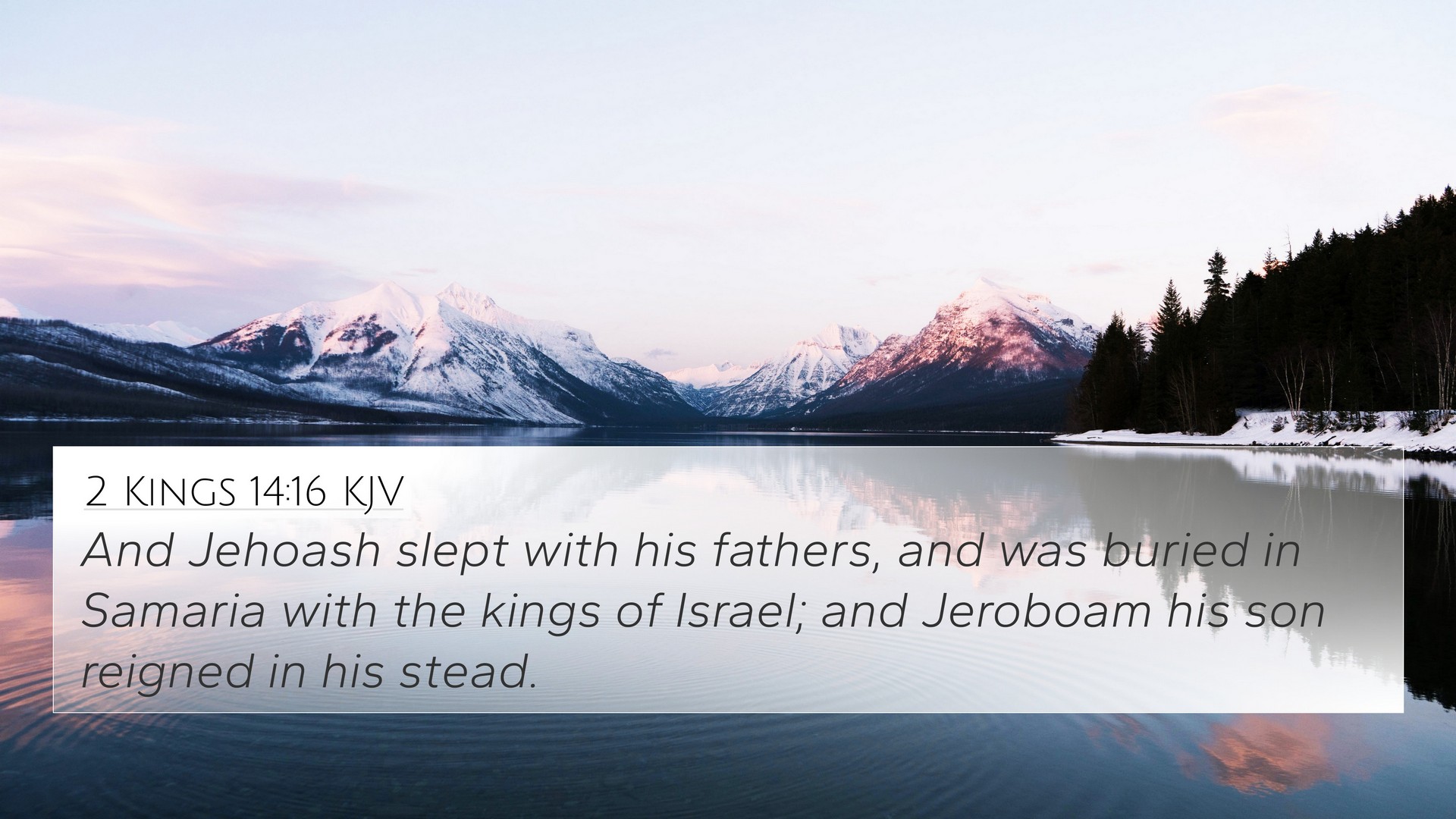
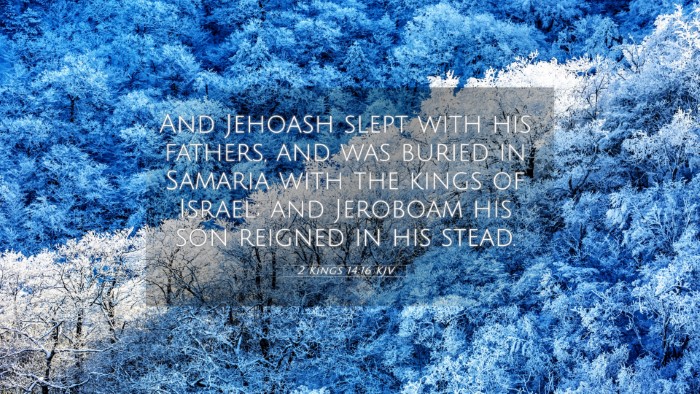

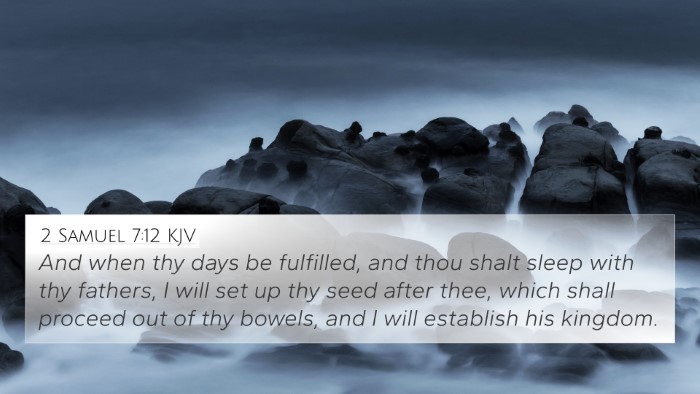
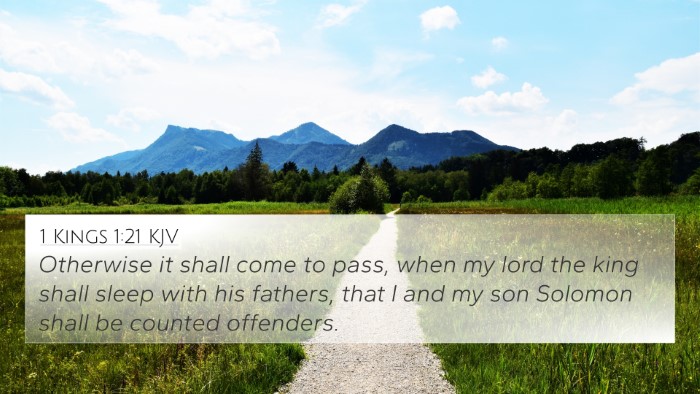
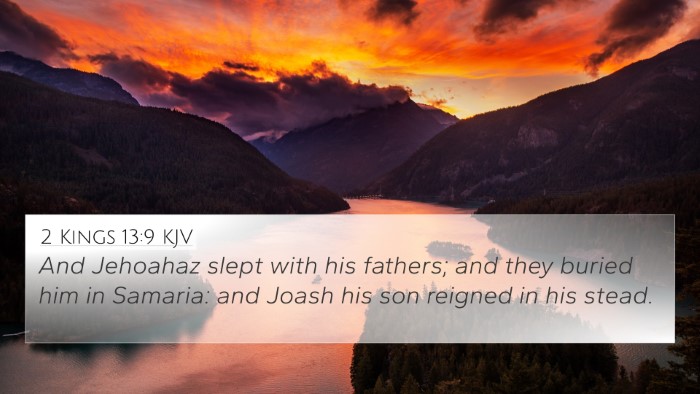
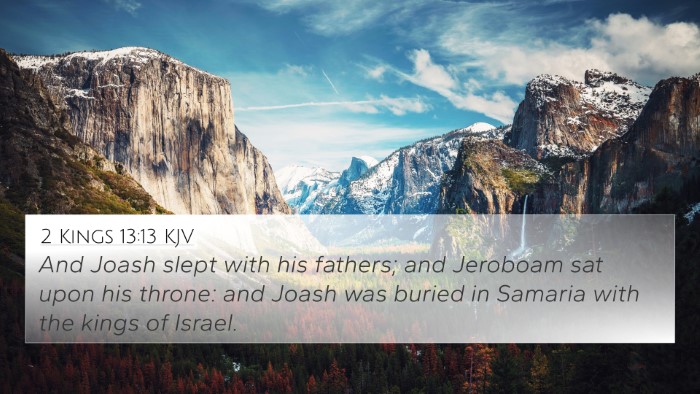
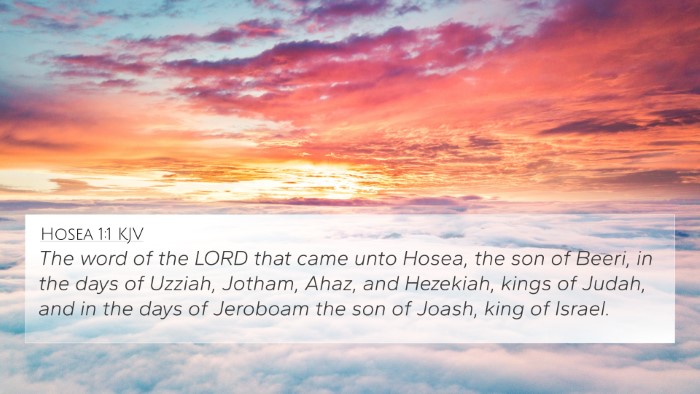
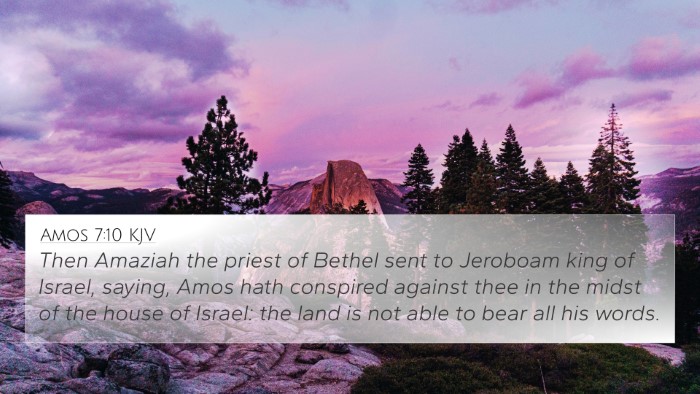
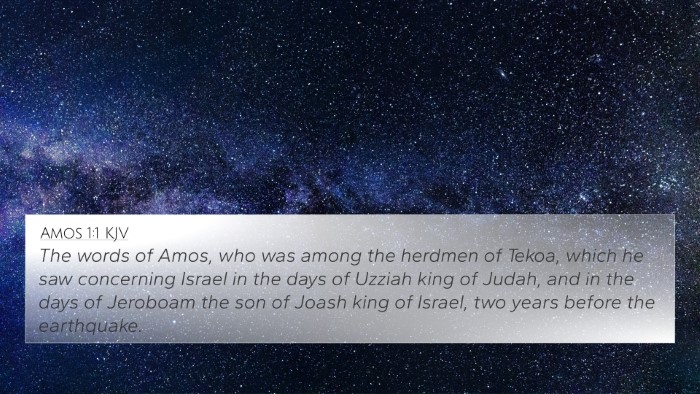
Insights from Biblical Commentaries
Henry emphasizes the significance of Jehoash's reign and death. He notes that despite some military successes, Jehoash failed to fully turn Israel back to God. His burial with the kings implies a level of honor, yet it belies the consequences of disobedience against God, as many of the kings faced judgment for their sins.
Barnes discusses the historic context, explaining how Jehoash's reign was marked by conflict and the restoration of territories lost previously. The mention of his son succeeding him ties into the theological theme of succession and the unbroken chain of leadership, hinting at the fulfillment of divine promises and the significance of family lineage in biblical history.
Clarke focuses on the implications of Jehoash’s death, suggesting that it serves as a reminder of the brevity of life and the responsibility that comes with authority. He points out that Jeroboam's ascension to the throne carries expectations of maintaining or improving the spiritual state of Israel. Clarke underlines the importance of examining the overarching themes of righteousness versus wickedness in the leadership of Israel.